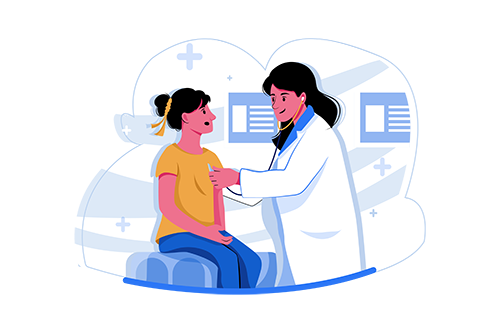Our Services


At High Desert Hospice, we understand that living with a serious illness can be overwhelming for both patients and their loved ones. That’s why we offer specialized Palliative Care services, focusing on relief from the symptoms, pain, and stress of a serious illness—whatever the diagnosis. Our goal is to improve quality of life for both the patient and the family.
What Is Palliative Care?
Palliative Care is specialized medical care for people with serious illnesses. This type of care is focused on providing patients with relief from the symptoms, pain, and stress of a serious illness, regardless of the diagnosis. The primary objective is to improve quality of life for both the patient and the family.
Our Approach to Palliative Care
Our Palliative Care services are designed to work in conjunction with your current medical treatments. The aim is to manage symptoms and side effects, making your medical treatments more effective and improving your quality of life.
Our dedicated team of Palliative Care specialists includes physicians, nurses, social workers, and other skilled professionals who work together to provide:
- Symptom Control: We help manage symptoms such as pain, shortness of breath, fatigue, constipation, nausea, loss of appetite, and difficulty sleeping.
- Communication and Coordination: Our team ensures that all your healthcare providers understand your goals, needs, and preferences. Effective communication is essential for providing comprehensive care.
- Emotional Support: Living with a serious illness can be tough not just physically, but emotionally. Our team offers support and counseling to help you and your family cope during this challenging time.
- Holistic Care: We address not just the physical symptoms of your illness but also provide psychological, social, and spiritual support.
Who Can Benefit from Palliative Care?
Palliative Care is not limited by age, disease stage, or treatment plan. It can be provided at any time during a person’s illness, from diagnosis onwards, and alongside curative treatments. Anyone who is experiencing discomfort, pain, or stress due to a serious illness can benefit from Palliative Care.
How Our Palliative Care Services Differ from Hospice
While Palliative Care can be provided at any stage of illness, Hospice Care is specific to the end of life—when curative treatment is no longer being pursued. Palliative Care is about providing relief and support at any point during your illness and is not dependent on the prognosis.
Your Journey with Palliative Care
Your journey through a serious illness is unique, and so our Palliative Care plans are personalized. We work closely with you and your loved ones to tailor a care plan that reflects your individual needs and treatment goals.
Get in Touch for Palliative Care
If you or a loved one is struggling with the impact of a serious illness, reach out to us at High Desert Hospice. Our Palliative Care services are here to offer support, alleviate discomfort, and improve your quality of life. Together, we can navigate the challenges of your illness with compassion, dignity, and comprehensive care.
Clinical Expertise and Symptom Management
Our medical doctors bring specialized knowledge in managing the complex symptoms often experienced by those facing life-limiting illnesses. They work collaboratively with nurses, caregivers, and other healthcare professionals to develop and implement a personalized care plan that focuses on alleviating pain and controlling symptoms, allowing patients to live as comfortably as possible.
Guidance and Decision-Making Support
Understanding the options and making decisions about end-of-life care can be overwhelming for patients and their families. Our doctors serve as compassionate guides, helping to navigate the often-difficult choices surrounding care. They provide clear information about the disease progression, prognosis, and treatment options, respecting the wishes and beliefs of each patient.
Collaborative Care Coordination
Medical doctors in hospice work as part of an interdisciplinary team that may include nurses, social workers, chaplains, counselors, and therapists. They coordinate this team effort to ensure a holistic approach to care that addresses all aspects of a patient’s well-being, including the management of any coexisting conditions in conjunction with the primary hospice diagnosis.
Emotional Support and Empathy
End-of-life care is not just about physical comfort; it’s also about providing emotional support. Our doctors are there to listen, to offer comfort, and to provide reassurance to both patients and families during this challenging time. They are skilled at addressing fears and concerns, and they strive to build meaningful relationships based on trust and empathy.
Advocacy and Ethical Oversight
Our physicians act as advocates for our patients’ needs and wishes, ensuring that the care provided aligns with their values and legal directives, such as living wills or advanced directives. They also provide ethical oversight in all aspects of patient care, ensuring that each individual’s end-of-life experience is managed with the highest standards of respect and dignity.
Educational Resources
An integral part of our doctors’ role is to educate the patients, families, and even the community about hospice care. They provide resources and knowledge that demystify the hospice process and advocate for quality end-of-life care, dispelling common misconceptions about what it means to enter hospice.
Bereavement and Grief Support
Even after a patient passes, our medical doctors remain a supportive resource for families, providing guidance through the bereavement process. They understand that grief is a journey, and they continue to offer support to families in partnership with our bereavement counselors.
In summary, medical doctors are an indispensable part of the High Desert Hospice care team, ensuring that every patient receives compassionate, individualized care in their final stages of life. They stand as pillars of professional care, emotional support, and medical expertise, all dedicated to one goal: to make the end-of-life journey as peaceful and dignified as possible for our patients and their loved ones.
